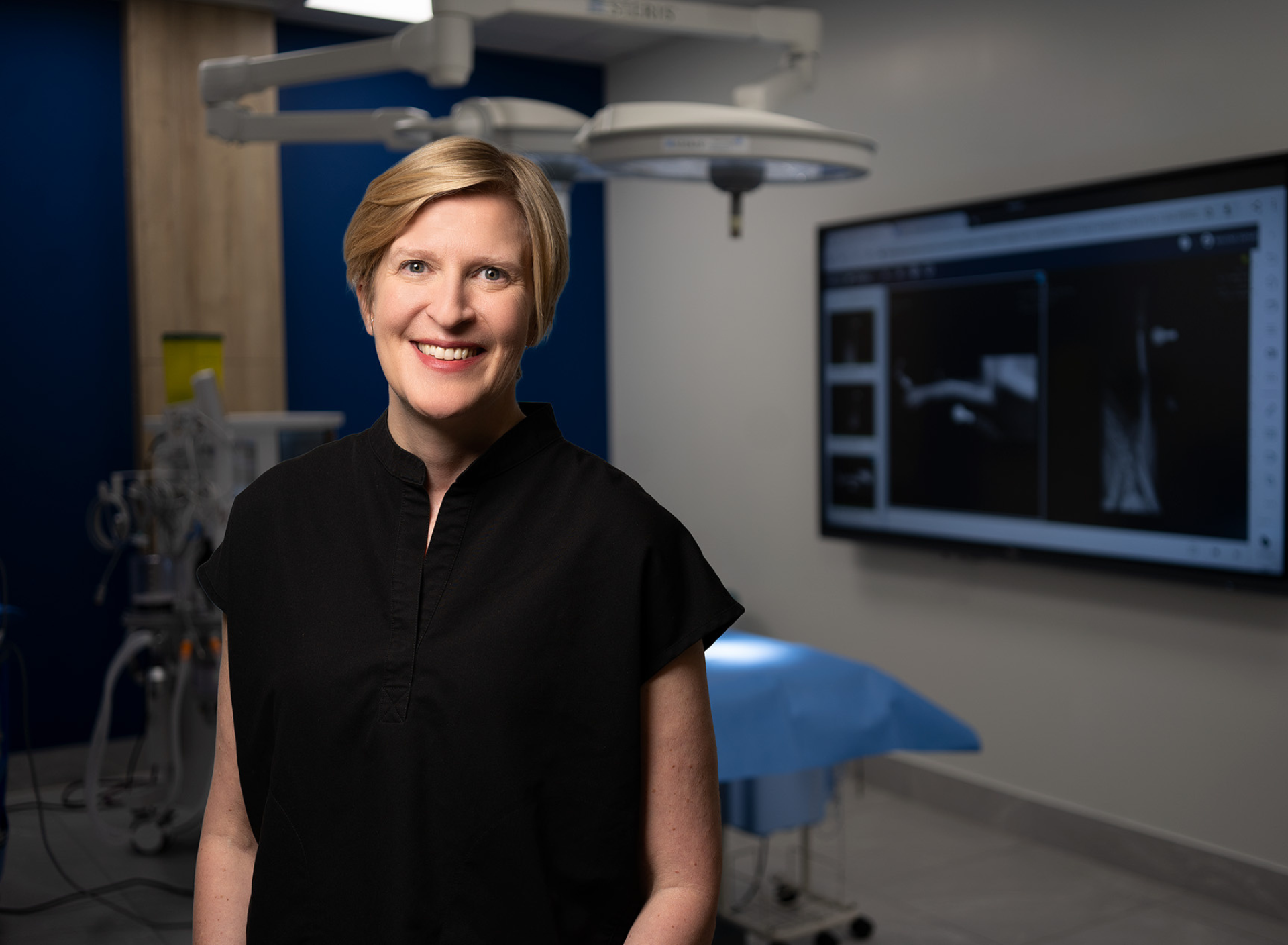Who is a Veterinary Surgeon?
A veterinary surgeon is a board-certified specialist in the diagnosis, treatment, and postoperative management of surgical diseases. A surgeon undergoes extensive training to acquire the specialized skills to diagnose and treat surgical diseases. This involves completing veterinary school to become a veterinarian (4 years), an internship program (minimum of 1 year), and an approved small animal surgery residency training program (3-4 years). After this training, the veterinarian must then complete and pass multi-day written and practical examinations to become a board-certified small animal surgeon.
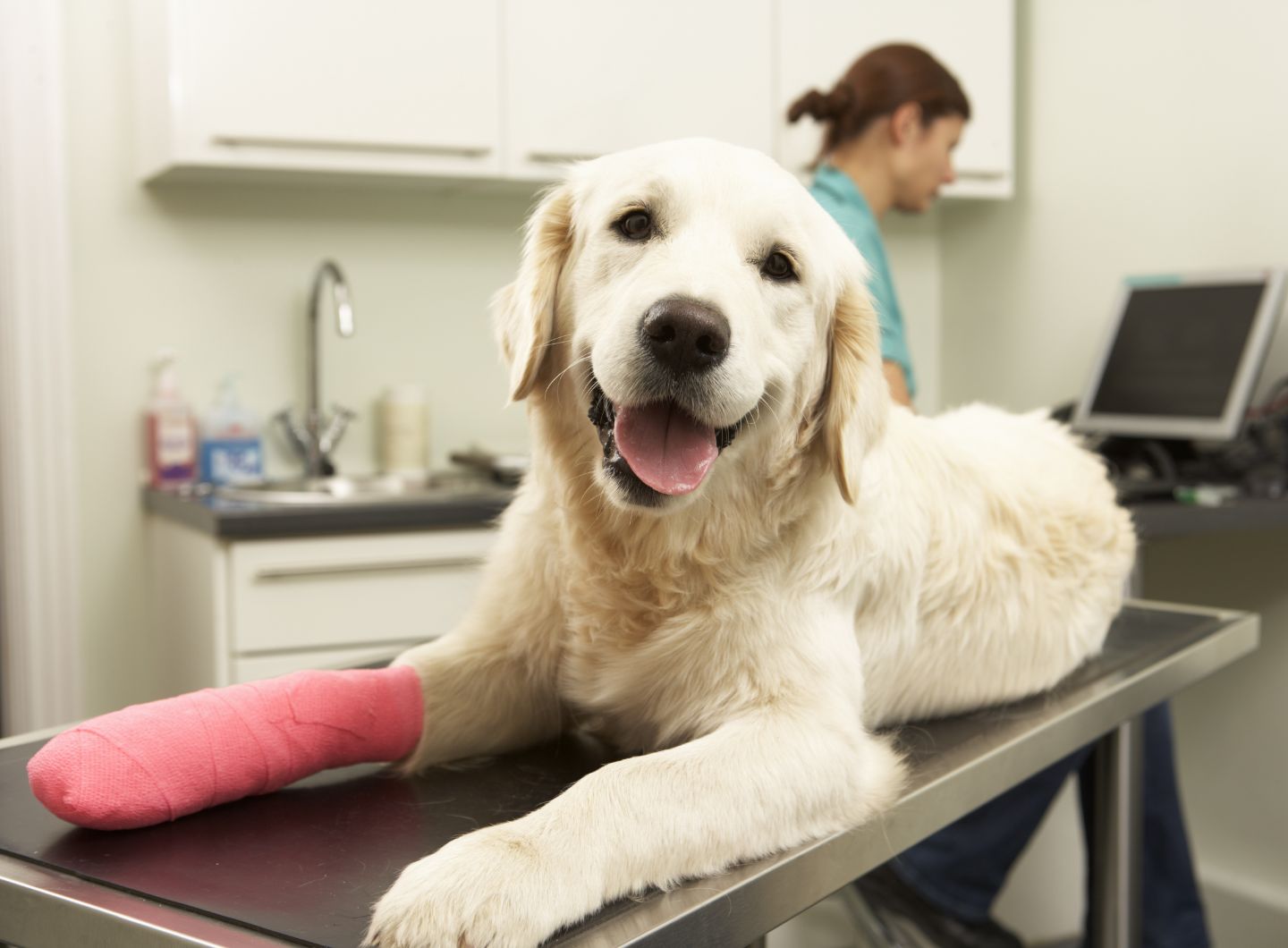
Our Surgery Specialists
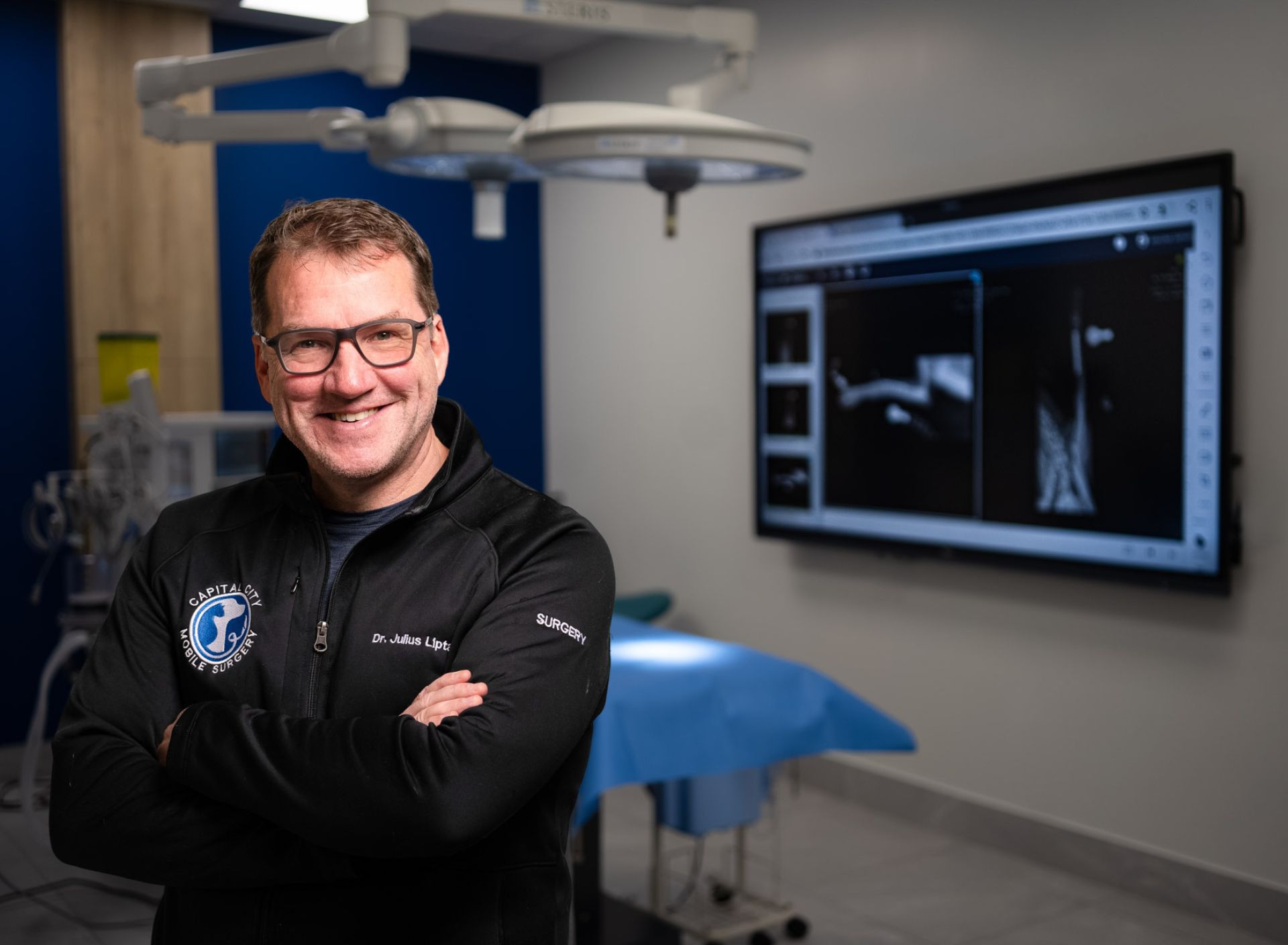
Dr. Julius Liptak
Veterinary Surgeon and Surgical Oncologist
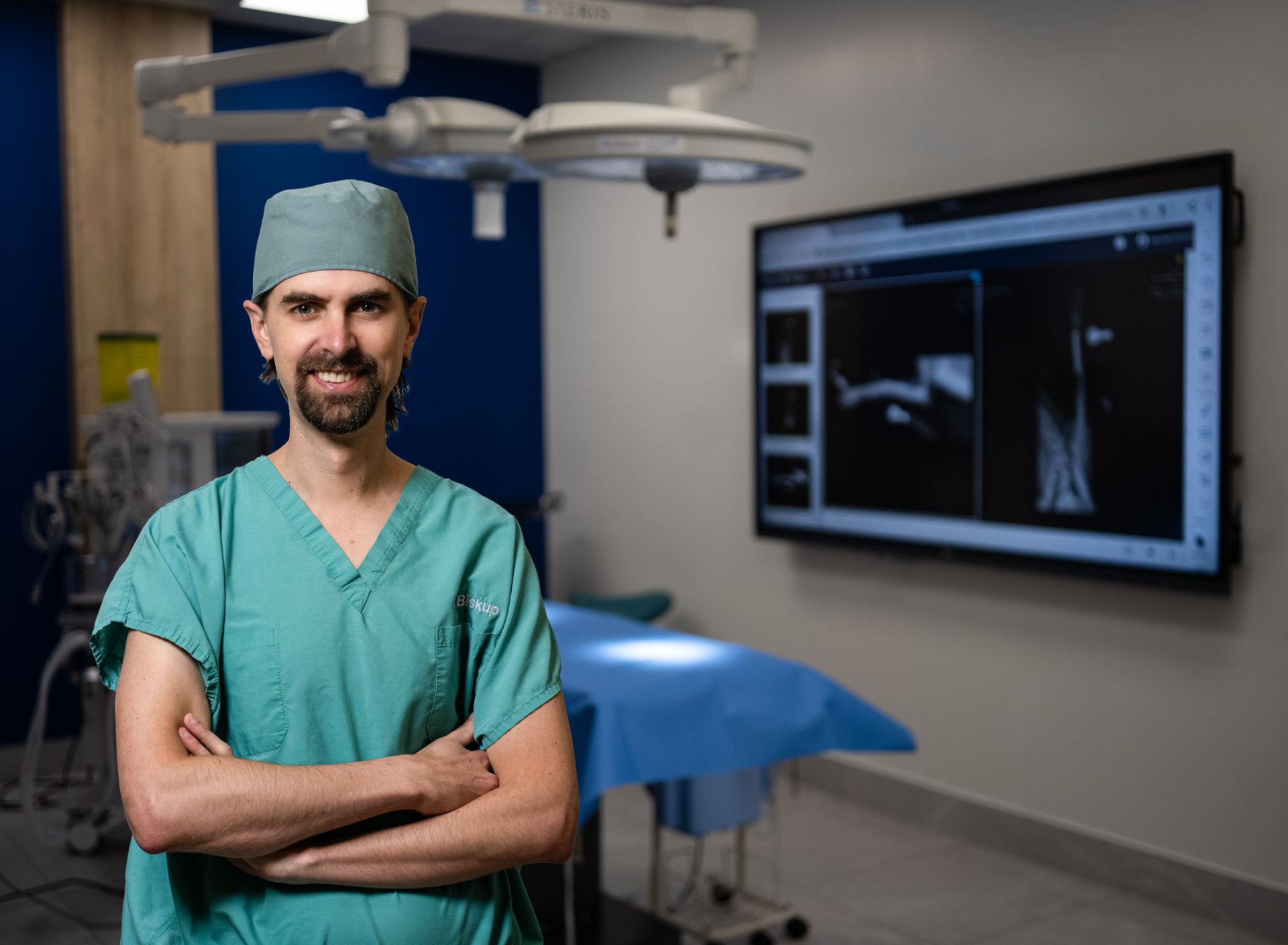
Dr. Jeff Biskup
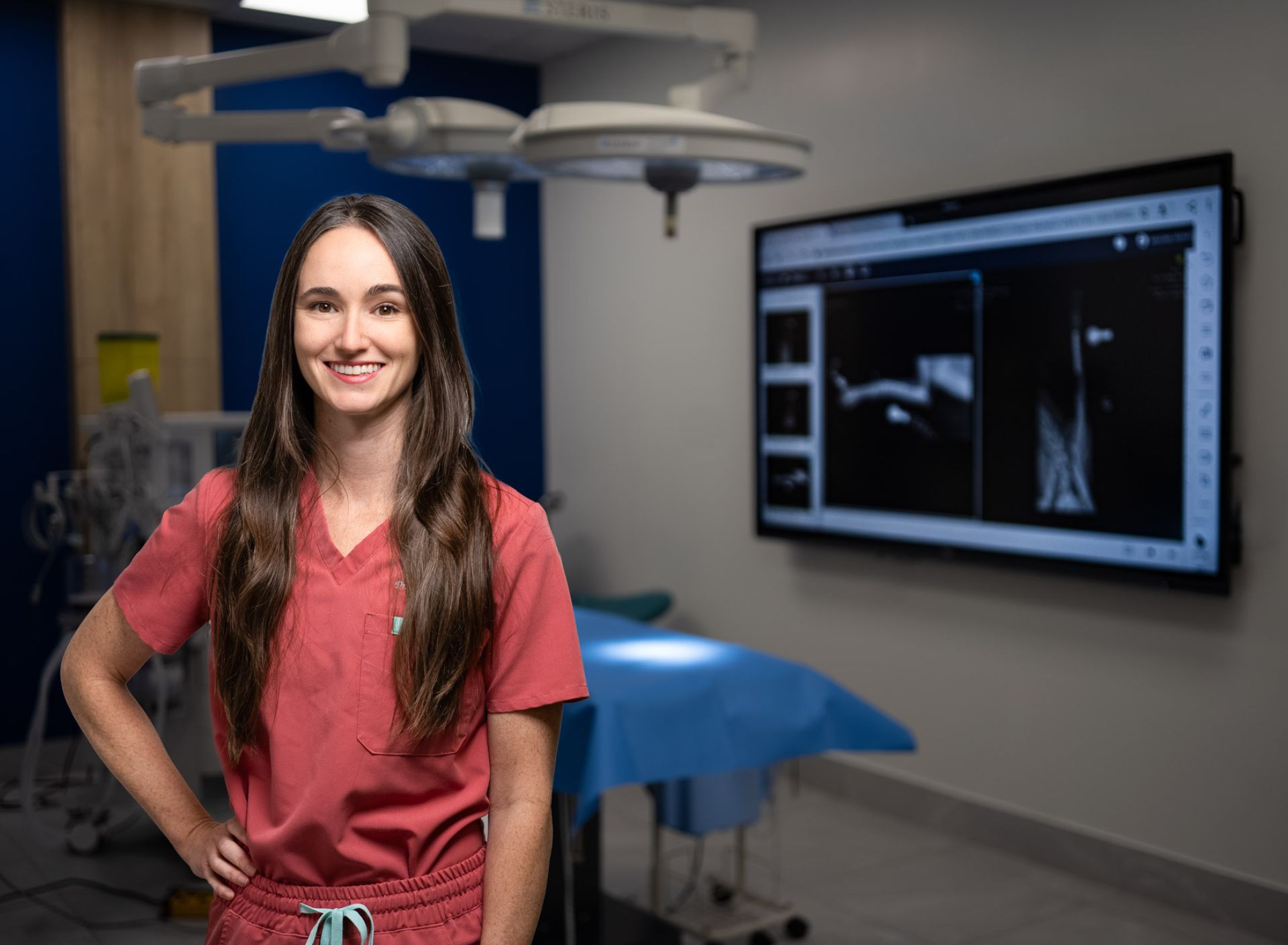
Dr. Lea Mehrkens
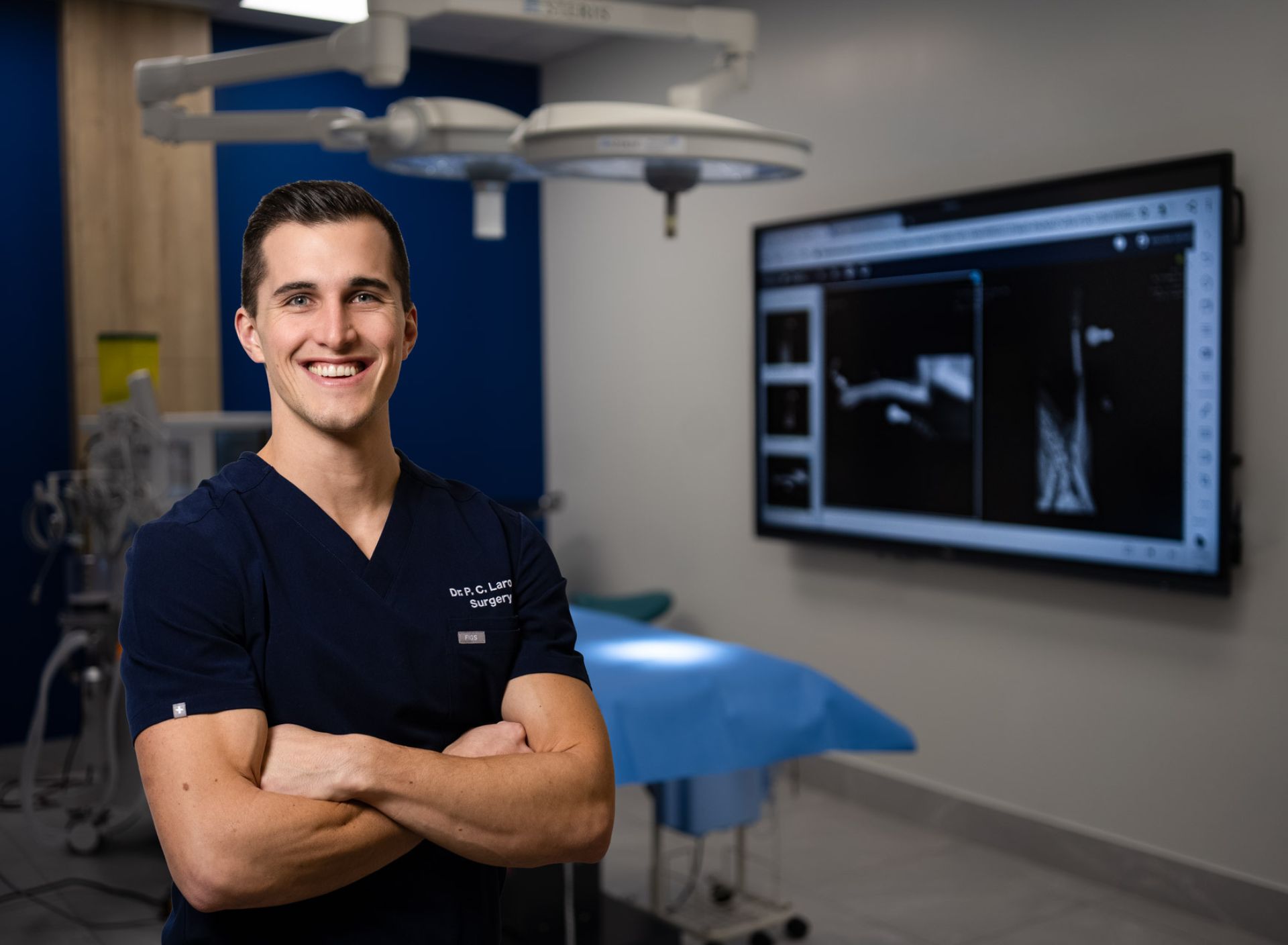
Dr. Phil Larose
Veterinary Surgeon
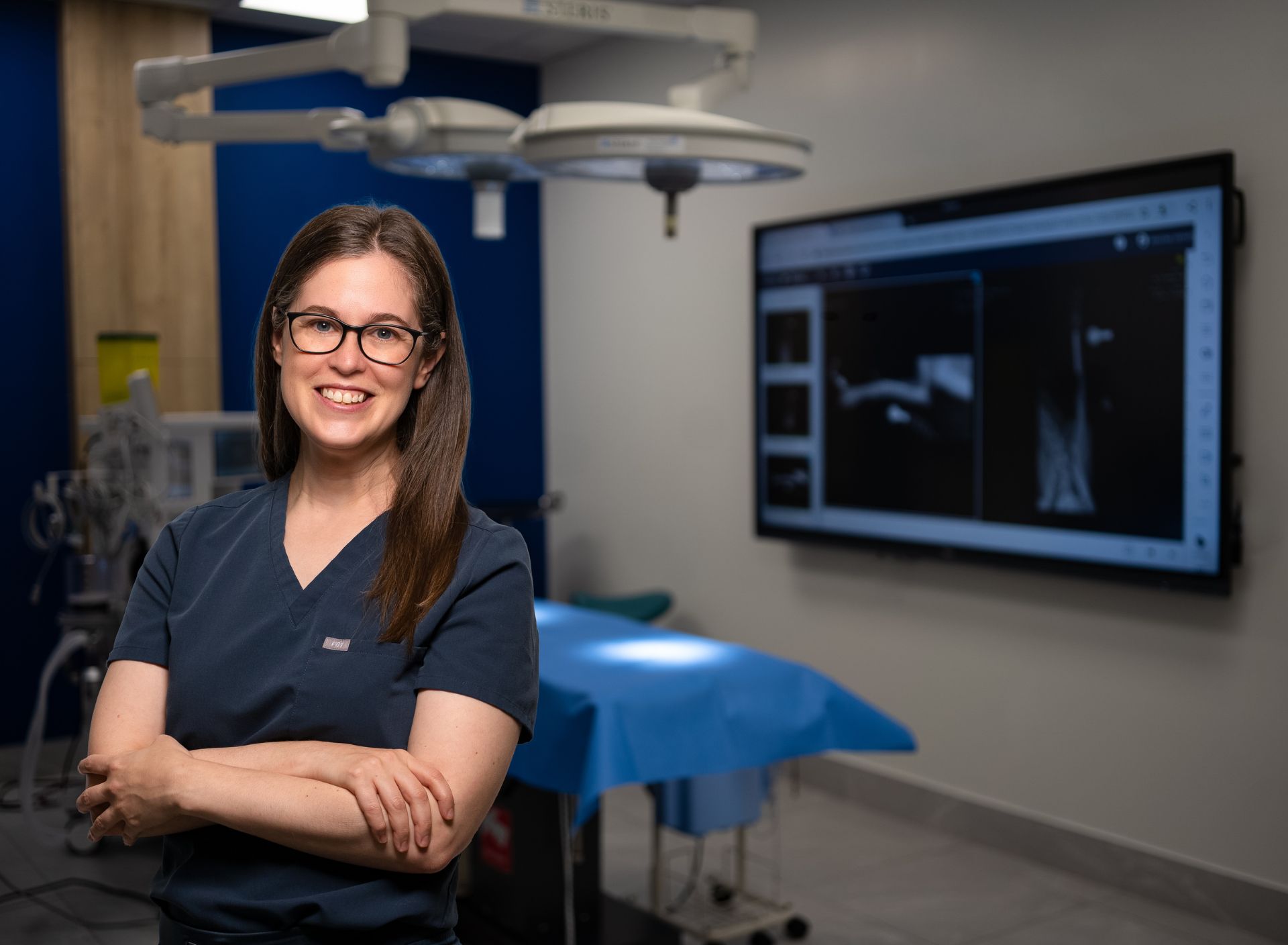
Dr. Jessie Lubelski

Dr. Mateo Castano Ospina
Veterinary Surgical Intern
When Should Your Pet See Our Surgeons?
Our surgery team is willing to see your pet anytime they have a surgical disease. We pride ourselves on being able to offer all types of surgeries, with a particular emphasis on orthopedic surgery, surgical oncology, and minimally-invasive surgery. We accept referrals from primary care veterinarians as well as self-referrals directly from owners.
What Are Some of the Common Orthopedic Conditions Our Surgeons Treat?
- Cranial (anterior) cruciate ligament rupture
- Patellar (kneecap) luxation
- Fractures and dislocations
- Hip dysplasia
- Elbow dysplasia
- Osteochondritis dissecans (OCD) of the shoulder, elbow, stifle, and tarsus
What Are Some of the Common Cancers Our Surgeons Treat?
- Skin and subcutaneous tumors (e.g., mast cell tumors, soft tissue sarcomas, etc.)
- Mammary tumors (breast cancer)
- Oral and maxillofacial tumors
- Ear tumors
- Thyroid and parathyroid tumors
- Thoracic tumors (e.g., lung tumors, cranial mediastinal tumors, etc.)
- Chest wall tumors
- Liver tumors
- Gastric and intestinal tumors
- Splenic tumors
- Adrenal tumors
- Pancreatic tumors
- Kidney tumors
- Bladder and prostate tumors
- Bone and periarticular (joint) tumors
- Skull and vertebral tumors
- Spinal cord tumors
What Are Some of the Common Soft Tissue Conditions Our Surgeons Treat?
- Brachycephalic obstructive airway syndrome
- Otitis externa
- Inflammatory middle ear polyps
- Salivary mucocoeles
- Laryngeal paralysis
- Pericardial effusion
- Spontaneous pneumothorax
- Chylothorax
- Pyothorax
- Diaphragmatic hernias (e.g., traumatic, peritoneopericardial, and hiatal hernias)
- Extrahepatic portosystemic shunts
- Gall bladder disease (e.g., gall bladder mucocoeles, cholecystitis)
- Gastric dilatation-volvulus (GDV)
- Gastric and intestinal foreign bodies
- Bladder and urethral stones
- Kidney and ureteral stones
- Ectopic ureters
- Inguinal hernias
- Perineal hernias
- Excessive vulval folds
- Acute and chronic wounds
What Are Some of the Common Neurologic Conditions Our Surgeons Treat?
- Intervertebral disk disease
- Caudal cervical spondylomyelopathy (Wobbler’s disease)
- Vertebral fractures and luxations
- Skull and vertebral tumors
What Are Some of the Tests Our Surgeons Use for the Diagnosis and Monitoring of Surgical Diseases?
- Blood work (e.g., complete blood count, serum biochemistry, endocrine panels, etc.)
- Urinalysis
- Culture and sensitivity for infectious diseases
- Fine-needle aspirates and punch biopsies
- Radiographs (x-rays)
- Abdominal ultrasonography
- CT scans
- Sentinel lymph node mapping
- Joint taps (arthrocentesis)
- Spinal taps for cerebrospinal fluid analysis
What Are Some of the Orthopedic Surgeries Our Surgeons Perform?
- Tibial plateau leveling osteotomies (TPLOs)
- Lateral fabellotibial (or extracapsular) suture stabilizations
- Total hip replacements
- Medial patellar luxation corrections
- Arthroscopic management of OCD and elbow dysplasia
- Fracture repairs with plates and screws, external fixators, or intramedullary nails
- Luxation repairs
- Platelet-rich plasma injections and stem cell therapy for advanced management of osteoarthritis
What Are Some of the Oncologic (Cancer) Surgeries Our Surgeons Perform?
- Skin tumor resections with or without flap or skin graft reconstruction
- Mastectomies (local to bilateral)
- Mandibulectomies and maxillectomies
- Total ear canal ablations and ventral bulla osteotomies
- Thyroidectomies and parathyroidectomies
- Lung lobectomies
- Chest wall resections and reconstructions
- Partial and total liver lobectomies
- Partial gastrectomies
- Intestinal resection and anastomoses
- Splenectomies
- Adrenalectomies
- Partial pancreatectomies
- Nephrectomies
- Partial and total cystectomies
- Partial prostatectomies
- Limb amputations
- Limb-sparing surgery
- Digit amputations
- Craniectomies
- Partial and total vertebrectomies
What Are Some of the Minimally-Invasive Surgeries Our Surgeons Perform?
- Arthroscopies for management of OCDs and elbow dysplasia and assessment of menisci
- Thoracoscopic pericardectomies
- Thoracoscopic-assisted lung lobectomies
- Laparoscopic spays
- Laparoscopic gastropexies
- Laparoscopic liver biopsies
- Laparoscopic cholecystectomies
- Laparoscopic adrenalectomies
What Are Some of the Soft Tissue Surgeries Our Surgeons Perform?
- Brachycephalic obstructive airway syndrome correction
- Total ear canal ablations and ventral bulla osteotomies
- Inflammatory middle ear polyps
- Sialoadenectomies
- Artenoid lateralizations (laryngeal tie-backs)
- Pericardectomies
- Lung lobectomies
- Thoracic duct ligations
- Diaphragmatic herniorrhaphies
- Extrahepatic portosystemic shunt attenuations
- Cholecystectomies (gall bladder removal) and cholecystoduodenostomies
- Gastric dilatation-volvulus (GDV) corrections
- Gastrotomies, enterotomies, and intestinal resection and anastomoses
- Ventral cystotomies and urethrotomies
- Subcutaneous ureteral bypasses
- Inguinal herniorrhaphies
- Perineal herniorrhaphies
- Vulvoplasties
- Wound management with primary closure, direct and indirect flaps, skin grafts, and vacuum-assisted closure therapy
- Tracheal, urethral, ureteral, and colon stenting
What Are Some of Neurologic Surgeries Our Surgeons Perform?
- Ventral slots
- Caudal cervical distraction and fusions
- Hemilaminectomies or pediculectomies
- Dorsal laminectomies
- Lumbrosacral distraction and fusions
What Should You Expect When Booking an Appointment with Our Surgeons at Capital City Specialty & Emergency Animal Hospital?
If your primary care veterinarian is referring your pet, we will reach out to you as soon as possible to schedule your appointment. If you are doing a self-referral for your pet, please either call (613 244 7387) or email (at surgery@capcityvet.com) our team directly. One of our team members will schedule you into the next available appointment slot. If the condition is urgent, then emergency surgery is usually possible within 24-48 hours. We will discuss these options with you if they are warranted. Our regular schedule is Monday to Friday from 8 a.m. until 5 p.m.
On the day of your appointment, you and your pet will be checked in at reception and brought to the surgery examination room. Your assigned surgeon will review your pet’s medical records, recent history, and perform a thorough physical and, if required, orthopedic examination. If indicated, they may suggest additional tests to further evaluate your pet’s condition.
After this examination, your surgeon will thoroughly discuss the examination findings with you and will make a treatment plan that best suits your pet, their condition, and your involvement. The entire process will take approximately 60 minutes.
If medications are required, a treatment plan and medications will be sent home with you with detailed instructions.
If surgery is recommended, this will be reviewed with you thoroughly. Anesthesia will be provided and monitored by our board-certified anesthesiologist, Dr. Matt Milloway, and his team for each of our surgical cases for the best and safest care possible.
A thorough report will be sent to both you and your primary care veterinarian, including your surgeon’s examination findings, diagnosis, treatments, follow-up recommendations, and a review of the recommended surgery and its potential complications. This will ensure that we are all included as a team to provide continuity of care for your pet.
We strive to provide you and your pet with the highest level of care. We love what we do, we love our patients, and we treat them as if they were our own.



